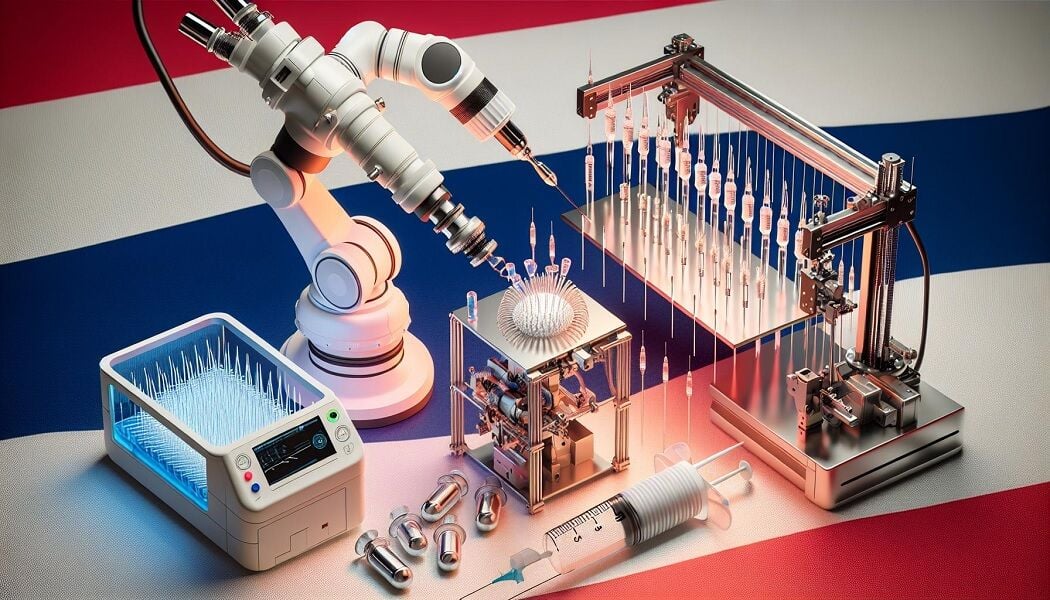Exploring the future of technology in health and wellness

In Thailand, the fusion of technology with health and wellness is transforming the way you manage your health. With the advent of digital health management applications like Good Doctor Technology Thailand’s mobile app, launched in 2021, accessing healthcare services has never been easier. You’re now at the forefront of a digital revolution that promises not just convenience but a comprehensive approach to wellness.
As you delve deeper, you’ll discover the significant impact of health-tech innovations in Thailand. With the industry on track to generate substantial revenue, it’s clear that technology is not just an adjunct but a central pillar in the quest for better health and wellness. Whether you’re a resident or a visitor, these advancements ensure that top-tier health services are just a tap away.
Overview of technology in health and wellness in Thailand

Thailand is forging ahead in the integration of technology in health and wellness, setting a benchmark for innovation and accessibility. The landscape of Thai healthcare has transformed, with digital platforms leading the charge. You’ll find that mobile apps, telemedicine, and wearable technologies now play pivotal roles in managing and improving health outcomes.
Digital health management applications, such as the ones developed by Good Doctor Technology Thailand, offer comprehensive services from consultations to treatment histories. This leap towards digitalisation caters to a population that’s increasingly health-conscious and faces challenges like an ageing society and the emergence of infectious diseases. Telemedicine platforms, following the trend, have seen significant investments, with Doctor Anywhere’s acquisition of Thailand’s Doktor Raksa for US$65.7 million highlighting the sector’s growth.
Personalized healthcare takes a front seat with services like Fit, where AI and smartwatch connectivity combine to tailor fitness plans. This not only enhances user experience but also ensures precision in health management by integrating medical records into exercise recommendations. What makes technology in health and wellness so impactful in Thailand is its user-centric design. Technology is now a central pillar in advancing health and wellness for both residents and visitors, promising a future where healthcare is more accessible, efficient, and tailored to individual needs.
Current trends in health and wellness technology

Wearable devices
More people are using wearable gadgets, like smartwatches and fitness bands, to look after their health. Brands like Apple, Garmin, and Fitbit use AI technology to understand your fitness data. These devices check your heart rate and blood pressure and give you personalised advice to help you reach your health goals. It’s now easier to stay healthy.
Telemedicine services
Telemedicine has revolutionised access to healthcare, especially in Thailand where the landscape is rapidly evolving. The convenience of consulting with healthcare professionals via video call cannot be overstated. It’s not just about ease but also about efficiency and effectiveness. Telemedicine 2.0 platforms have expanded capabilities, capturing more patient data and integrating with various healthcare facilities. This ensures you receive comprehensive care without stepping foot outside your home. As a result, long-term primary care management has seen significant improvements, supported by the advancements in digital healthcare technologies.
Health tracking apps
The rise of health-tracking apps is another noteworthy trend. Apps like Fit, developed with inputs from sports medicine specialists, use AI to adapt your exercise plan based on weekly performance and feedback from your wearable devices. This synergy between apps and devices empowers you with over 200 exercise videos, tailored fitness plans, and dynamic challenges. The goal is to maintain motivation while ensuring accuracy and precision in your health and fitness journey. Additionally, platforms like Samitivej’s app bring hospital and doctor services to your fingertips, offering functionalities like appointment scheduling, video consultations, and medication delivery.
Challenges in implementing technology in the health and wellness sector

Incorporating technology into health and wellness initiatives in Thailand brings its share of challenges. It’s essential to understand these obstacles to navigate and leverage technology effectively.
Data privacy concerns
Your data’s security is paramount, especially when it’s related to your health. Technology in the health and wellness sectors heavily relies on collecting, storing, and processing personal data. This includes sensitive information like medical records and fitness metrics. Despite robust data protection laws like GDPR and Thailand’s PRPA, concerns about data privacy persist. The fear of unauthorized access to personal health information can deter people from using these technologies. It’s a significant challenge that developers and service providers must address. They need to ensure not only compliance with legal standards but also the trust of users by implementing advanced cybersecurity measures.
Limited internet connectivity in remote areas
The benefits of technology in health and wellness should be accessible to all. However, one key challenge is the uneven distribution of internet connectivity. Remote areas in Thailand often face limited or inconsistent access to the internet. This disparity creates a significant barrier to the adoption of telemedicine services, health apps, and other online wellness programs. Without reliable internet, residents in these areas can’t fully utilize advancements designed to make healthcare more accessible and personalized. Bridging this digital divide is crucial to ensuring equal access to health and wellness technologies for every Thai citizen. Reducing this gap would involve not just infrastructural development but also targeted programs to boost digital literacy in remote communities.
Success stories of technology integration in Thai healthcare
When exploring the landscape of technology in health and wellness in Thailand, you’ll find some remarkable achievements that showcase innovation and progress. These success stories highlight the country’s commitment to advancing healthcare through technology.
One pioneering project involves the application of 3D printing technology to create medical implants. These implants, designed for skull, jaw, and hip prosthetics, represent a significant leap forward in personalised medical solutions. The ability to tailor-make implants for individual patients ensures a better fit, faster recovery times, and improved overall outcomes.
Another noteworthy innovation comes from the field of medical robotics. The development of sophisticated medical robots has enhanced surgical precision and patient care. This technology assists surgeons in performing complex procedures with higher accuracy and minimal invasiveness. Furthermore, the collaboration between Cosmo Meditec Company and Lerdsin Hospital, among others, led to the creation of an artificial shoulder joint prosthesis. This breakthrough significantly improves the recovery prospects for bone tumour patients, offering hope and improved quality of life
To further enhance your protection against PM2.5 pollution, consider masks that not only offer high filtration efficiency but also comfort for prolonged use. Beyond the N95, KN95, and FFP2 masks, which are industry standards for filtering out fine particles, there are also masks equipped with advanced features like adjustable straps, exhalation valves for easier breathing, and soft, skin-friendly materials to prevent irritation during extended wear. For those with sensitivities or specific health concerns, masks that have been certified by health authorities and tested for breathability and filtration efficiency are paramount.

































